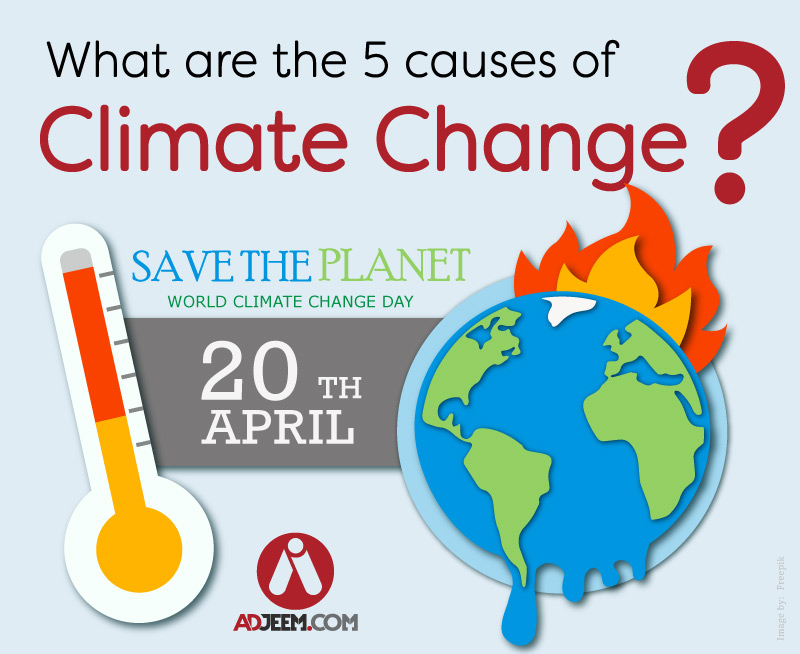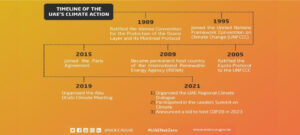
What are the 5 causes of climate change?
Climate change is a phenomenon that is affecting the entire planet. It refers to the long-term changes in the earth’s temperature, precipitation, and other weather patterns. While there are natural factors that contribute to climate change, it’s the human activities that are accelerating the process. Here are five major causes of climate change:
1. Burning Fossil Fuels
Generating power and heat by burning fossil fuels like coal, oil, and gas is the most significant cause of climate change. When we burn these fuels, they release carbon dioxide and other greenhouse gases into the atmosphere. These gases trap heat, causing the earth’s temperature to rise.
2. Deforestation
Deforestation is another major contributor to climate change. Trees absorb carbon dioxide from the atmosphere and store it as carbon. When forests are destroyed, either by cutting or burning, the stored carbon is released into the atmosphere. This contributes to the increase in atmospheric carbon dioxide levels, which affects the earth’s temperature.
3. Agriculture
Agriculture is also a significant cause of climate change, particularly livestock production. Animals like cows, sheep, and goats produce methane, a potent greenhouse gas that is more harmful than carbon dioxide. Fertilizers used in farming also emit nitrous oxide, another greenhouse gas.
4. Transportation
Transportation is another significant contributor to climate change. Cars, trucks, and planes emit carbon dioxide and other greenhouse gases, contributing to the warming of the planet. The increase in transportation demand worldwide has resulted in an increase in emissions, making it one of the major causes of climate change.
5. Buildings
Buildings that use fossil fuels for heating and cooling also contribute to climate change. They emit greenhouse gases like carbon dioxide and methane, which trap heat and cause the earth’s temperature to rise. The construction industry also contributes to climate change, with the production of cement being a significant contributor to carbon emissions.

The UAE’s response to climate change, and Actions on Climate Change
The United Arab Emirates (UAE) has taken significant steps towards mitigating the impacts of climate change and promoting sustainability. These actions demonstrate the country’s commitment to achieving a sustainable future and promoting environmental stewardship.
UAE Net Zero 2050
The UAE Net Zero by 2050 strategic initiative is a national drive to achieve net-zero emissions by 2050, making the Emirates the first Middle East and North Africa (MENA) nation to do so.
The UAE Net Zero 2050 strategic initiative aligns with the Paris Agreement, which calls on countries to prepare long-term strategies to reduce greenhouse gas (GHG) emissions and limit the rise in global temperature to 1.5 C compared to pre-industrial levels.
Here are some of the key initiatives and actions taken by the UAE:
Transition to Renewable Energy
The UAE is one of the largest producers of oil and gas in the world, but it has also made significant investments in renewable energy. The country has set a target to generate 44% of its energy from renewable sources by 2050, with a focus on solar energy.
Green Building Standards
The UAE has implemented green building standards to promote sustainable construction practices. The Estidama program, launched in 2010, aims to promote sustainable design and construction practices, including energy-efficient buildings and water conservation.
Carbon Capture and Storage
The UAE has invested in carbon capture and storage (CCS) technology to reduce greenhouse gas emissions from the oil and gas industry. The country’s first CCS project, the Al Reyadah facility, captures carbon dioxide from an iron and steel plant and injects it into a nearby oil field for enhanced oil recovery.
Conservation and Biodiversity Protection
The UAE has established protected areas to conserve its unique biodiversity, including the Jebel Hafit National Park and the Arabian Oryx Sanctuary. The country has also implemented measures to protect its coral reefs, which are threatened by climate change and other human activities.
Sustainable Transportation
The UAE has made significant investments in public transportation, including the Dubai Metro and Abu Dhabi’s Bus Rapid Transit system. The country is also promoting the use of electric vehicles and has set a target to have 42,000 electric vehicles on the road by 2030.

Can we stop climate change?
Climate change is a complex and global issue that has been accelerated by human activities. While we cannot completely stop climate change, we can take steps to slow it down and mitigate its impacts. Here are some ways we can take action:
1. Reduce Greenhouse Gas Emissions
Reducing greenhouse gas emissions is critical to slowing down climate change. This can be achieved by adopting renewable energy sources like solar, wind, and hydropower, reducing our reliance on fossil fuels, and promoting energy efficiency in buildings and transportation.
2. Preserve Forests and Biodiversity
Forests play a crucial role in regulating the earth’s climate by absorbing carbon dioxide from the atmosphere. Preserving forests and other natural habitats can help to slow down climate change and protect biodiversity.
3. Promote Sustainable Agriculture
Sustainable agriculture practices like organic farming, agroforestry, and crop rotation can help to reduce greenhouse gas emissions from the agricultural sector. These practices can also help to conserve soil health, reduce water use, and promote biodiversity.
4. Invest in Green Technologies
Investing in green technologies and innovation can help to reduce emissions from various sectors and promote sustainable development. This includes developing electric vehicles, hydrogen fuel cells, and other renewable energy technologies.
5. Educate and Raise Awareness
Education and awareness-raising are essential to motivate people and policymakers to take action on climate change. By promoting public understanding of climate change and its impacts, we can encourage individuals and communities to take steps to reduce their carbon footprint.
While it may not be possible to completely stop climate change, taking action to slow it down and mitigate its impacts is critical to protecting our planet and ensuring a sustainable future. In conclusion, human activities are the main drivers of climate change, and it’s essential to take action to reduce greenhouse gas emissions. This includes adopting renewable energy sources, preserving forests, reducing meat consumption, using public transport or electric vehicles, and promoting green building practices. By taking these steps, we can work towards slowing down the effects of climate change and preserving the planet for future generations.
